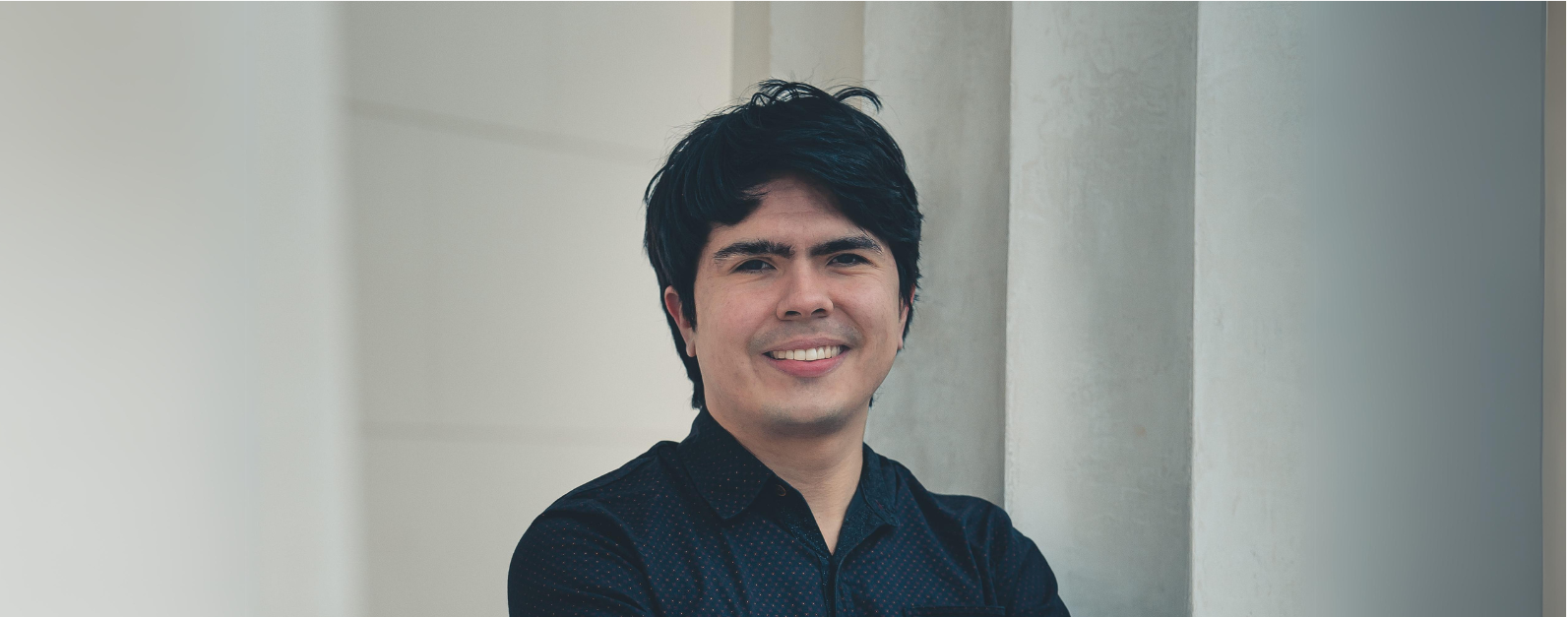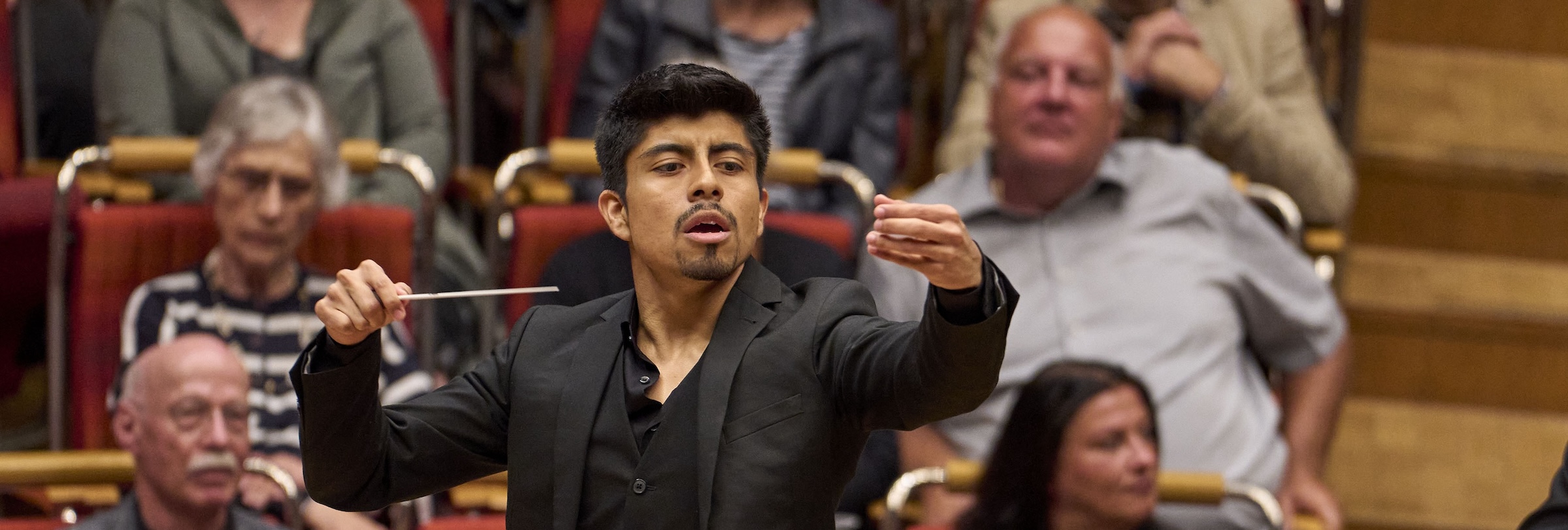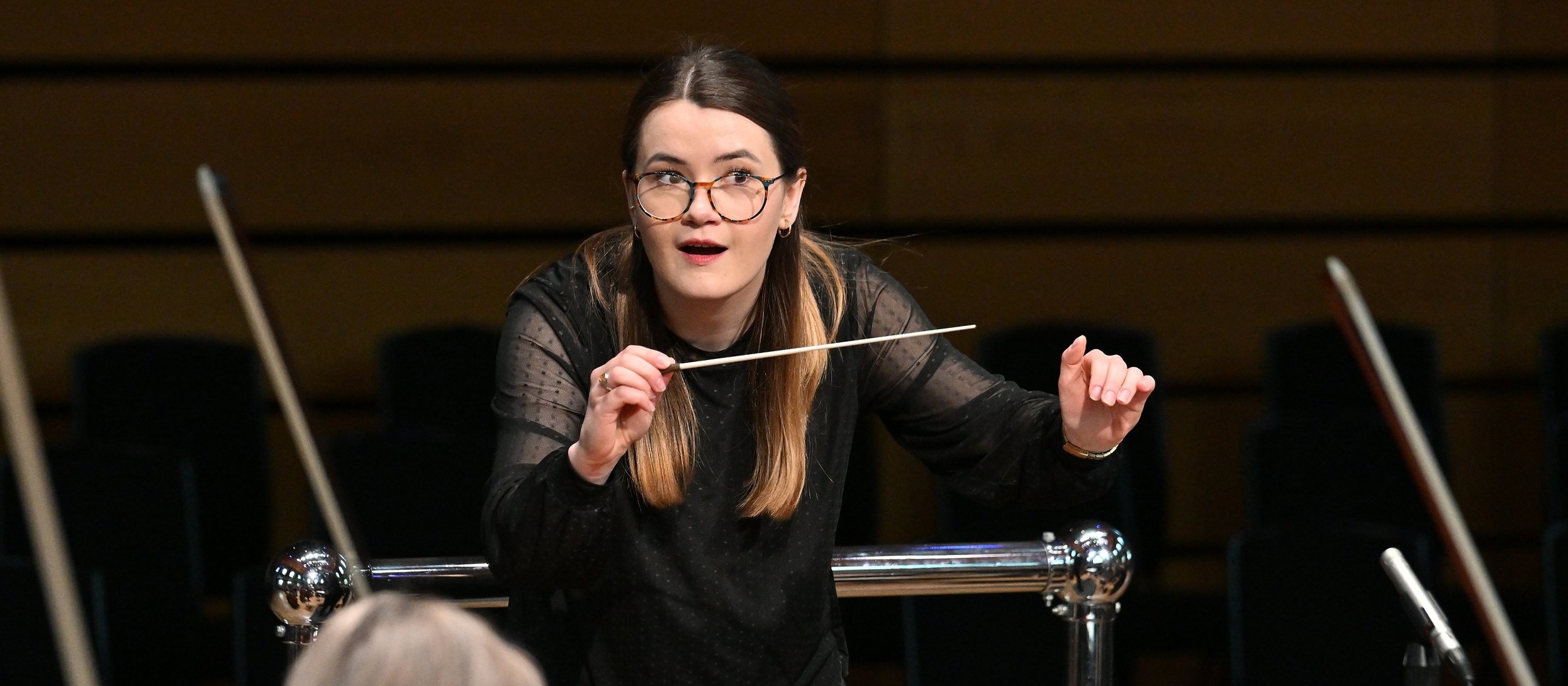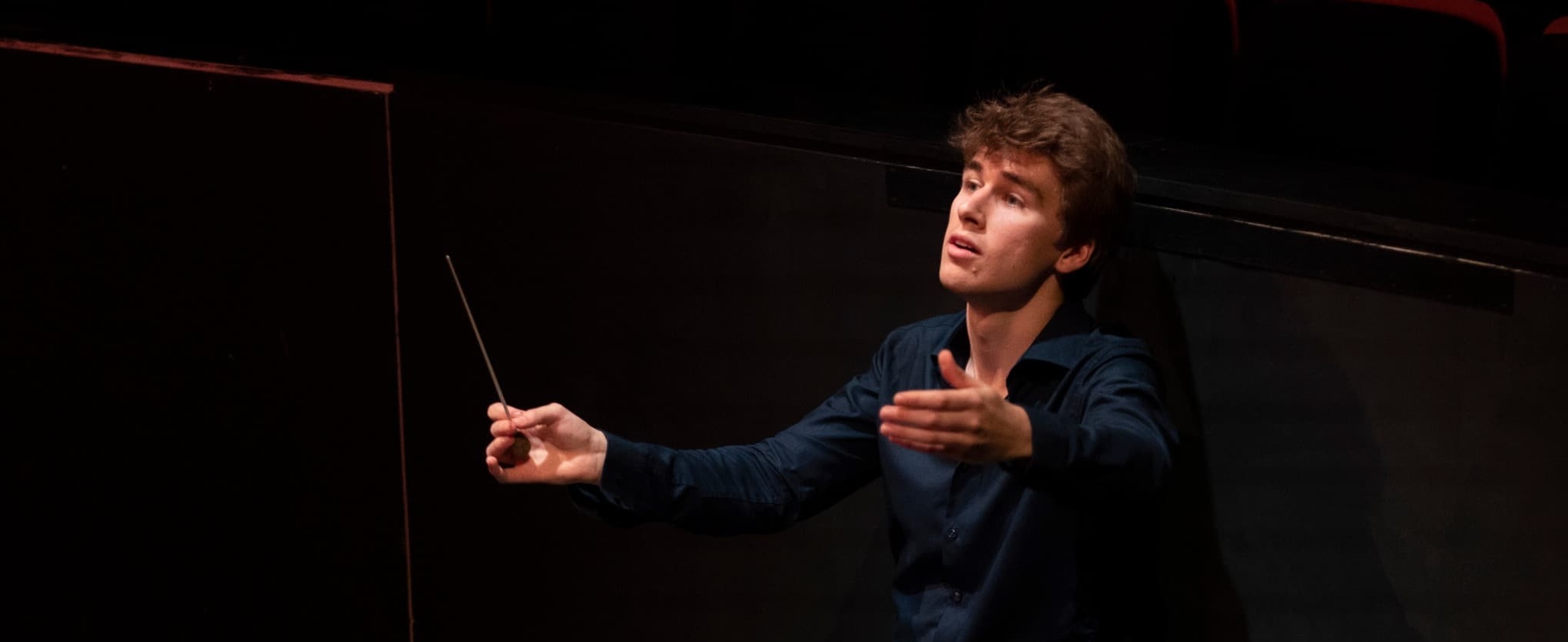Young talent to take up the baton

Sebastián Almánzar

‘At two years old, I was already waving my arms around to classical music in my playpen. There were no musicians in the family, and I’d never seen a conductor before. My mother would put on classical music because she thought it was good for children. At the age of five, I joined a choir and later studied piano.
‘I began my conducting studies in Medellín in 2012. There aren’t many opportunities to see leading orchestras there, so we would watch videos in class – including performances by Maestro Thielemann. I’ve been following his career ever since. It’s a great privilege to have been chosen from so many other musicians to learn from him. And I hope he can give me not only technical guidance on how to maintain tension from beginning to end, but also advice on how to communicate with the musicians – how to read the room. We would also listen to the Concertgebouw Orchestra in our lessons. It has such a unique sound. At first, I was familiar only with Colombian orchestras. Latin Americans have a lot of energy. We’re happy and loud, and that’s how we play, too. Now that I live in Vienna, I try to bring a little of that liveliness to European orchestras as well.
‘I’ve auditioned several times for the Ammodo Masterclass. It’s our dream as young conductors to conduct the Concertgebouw Orchestra. I think whether you’re selected has a lot to do with timing. Over the last year, I’ve worked on multiple projects, met people and gained experience. So I guess now was the right time for me and that I’m ready for the masterclass.’
Dayner Tafur-Diaz

Dayner Tafur-Diaz (Peru, 1998), photo: Claus Langer
‘I’m the first musician in the family. Originally, I wanted to become a doctor which made my mother in particular very happy. When I told her I wanted to be a conductor instead, it took her some time to adjust, but she’s since come round to the idea. I started out as a trumpet player in an orchestra in Chimbote, my hometown. Watching the conductor at work, I was fascinated. Later I got the chance to conduct a youth orchestra myself, but it was a pretty tough gig. There are few opportunities for young conductors in Peru, so when I was nineteen, I went to Germany to continue my studies. I’m now working towards my master’s degree in Stuttgart.
‘In Latin American music, like the salsa, the trumpet parts are always very rhythmical. It’s because of my background as a trumpet player that I always pay attention to the rhythm first. That’s not to say that all I do is stand there beating time, though!
‘I hope to learn how to conduct Wagner properly from Maestro Thielemann. He’s a specialist in this area. The most difficult thing about Wagner’s music is that there are so many different melodies coming together at once.
‘I’m more extroverted than usual in rehearsals, and can talk very openly about music. However, compared to many of the players in the orchestra, I’m still quite young. That’s why it’s also important for me to learn to stop acting like a student and really present myself as a conductor.’
Zofia Kiniorska

‘I come from a musical family. My parents really wanted me to be a pianist, but I would get so stressed during performances that it began to affect my health. It was in secondary school that I started to conduct amateur choirs, then gradually, instrumental ensembles. At one point, I thought, “Wow, I can do this without getting stressed out! Maybe I’ve found my niche.” Even now, I don’t feel negative stress when I’m conducting onstage, just a healthy sense of excitement.
‘It took some time before my parents were OK with my career change, mainly because they were concerned it would be tough for me as a woman. But now that they see how fulfilled I am as a conductor, they’re very happy and proud of me.
‘I look quite young, and that can sometimes be an obstacle, since certain musicians see conducting as a profession for older, more experienced people. There are still a lot of conservative orchestras out there that prefer not to work with young people. But I’m a very positive, energetic person, and I always try to work with people at the same level. And that works. The world is starting to change. I’m even teaching at my old music school now, which is a sign in itself.
‘I feel very honoured to be a part of this prestigious masterclass. These last few years, I’ve watched it all online. Maestro Thielemann is such a legend. I’m so looking forward to meeting him and will be grateful for any advice he has for me. Everything he says will probably make me think, “Oh, yes, of course!”’
Swann Van Rechem

'I was in the audience at the very first Ammodo Masterclass with Mariss Jansons in 2012. And I’ve been preparing to take part myself ever since. I applied before this year, even though I knew it was probably too early.‘I know the Concertgebouw Orchestra very well, and admire the musicians so much. As a student in Amsterdam, I would often hear them perform live. They’re at home in such wide-ranging repertoire – they can sound so warm and powerful in Bruckner or Mahler, yet always maintain a certain elegance. Even in French or American music, they have a certain lightness.
‘This year I was lucky enough to conduct the Concertgebouw Orchestra for forty minutes when auditioning for the position of associate conductor. It was then that I realised how unbelievably responsive they are: I could make the slightest gesture with my hand and the sound would change. The sky is the limit with them. That’s not necessarily the case with certain other orchestras, which can quickly feel a bit lost in unfamiliar territory, as if they’re not quite at home.
‘My background as a percussionist is very useful in conducting. Obviously, I’ve got a good sense of rhythm and tempo, but it also helps because I’m used to doing one thing with one hand and something completely different with the other.
‘I’d love to learn from Christian Thielemann how to get a certain sound without interfering too much. That’s basically the art of conducting – knowing just what the orchestra does and doesn’t need. And how to get the musicians where you want them. In the future, I’d like to build a relationship with an orchestra for a few years, rather than jumping from orchestra to orchestra every week.’

Text: Stella Vrijmoed
Preludium, the magazine (in Dutch) for the Concertgebouw and the Concertgebouw Orchestra.